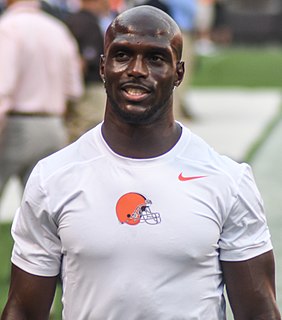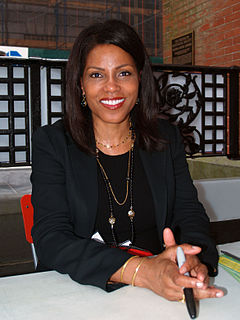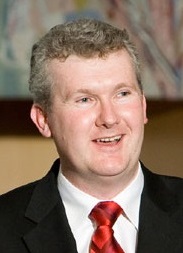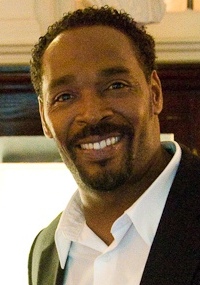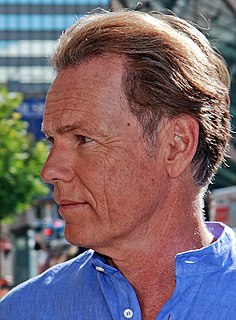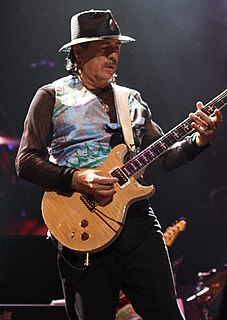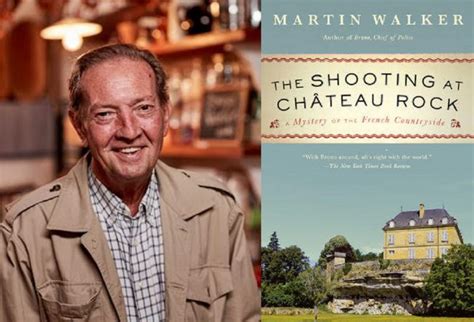Top 267 Malcolm Quotes & Sayings - Page 4
Explore popular Malcolm quotes.
Last updated on April 19, 2025.
Malcolm Fraser, in the marrow of his bones, despised racism. He despised people who discriminated against other people because they were different and in particular because of the colour of their skin, and I don't think there has been a time in Australian politics where there has been more attention to the importance of that value.
What is striking is that from almost from the very beginning of certainly by September and October of 1963, as the book was being constructed, that [Alex] Haley was vetting - asking questions to the publisher and to the publisher's attorney regarding many of the things that Malcolm X was saying. He was worried that he would not have a book that would have the kind of sting that he wanted.
I'm sorry to bang on about it because I know everyone is, but Bryan Cranston in 'Breaking Bad' is remarkable. To see him switch from 'Malcolm in the Middle' to suddenly become Walter White is incredible. It's a) nice to see an actor given that chance, and b) great to see him really take full advantage of it.
Malcolm X envisions a broad-based pluralistic united front, which is spearheaded by the Nation of Islam, but mobilizing integrationist organizations, non-political organizations, civic groups, all under the banner of building black empowerment, human dignity, economic development, political mobilization.
You see Martin Luther King is dead and Huey Newton is not. And Malcolm X is dead and Bobby Seale is not. And Vernon Jordan was shot. The thing that revolutionaries, or even people who want to claim they're revolutionaries, often forget is that it doesn't make no difference what kind of wardrobe you wear, and if you speak up about Black people doing better you just risked your life.
I think for guys - you're going to have some people that are willing to be on the front line. You think of guys like Malcolm Jenkins, Demario Davis - guys that are willing to speak up and say, 'Hey, there's a problem, and I want to help change, and I want to be a vessel to keep this thing moving and see change.'
I don't get too political in my music, because some people tend to get bored with the message: I say what's necessary and leave it at that. The books of Malcolm X go deeper than any song. But entertainers can be educators. Music touches the soul. Knowledge touches the mind. When you combine the two, you capture the whole.
What is clear is that Malcolm X incorporated within the framework of black nationalism a pan-Africanist and internationalist perspective. In doing so, he began to reassess radically earlier positions sexism and patriarchy. He began to break with notions of sexism that he had long held as a member of the Nation of Islam, and began to advance and push forward women leadership in the OAAU.
Many of our students want to do what they have done and that has made them successful thus far in their lives: play by the rules, and do what is expected. But as much social science research and writing by Malcolm Gladwell, among others, make clear, the rules are mostly created by those already in power so obtaining power often entails standing out and breaking rules and social conventions.
But it's me taking a stand for something that means something. And it's for the fighters who are up and coming. It's sort of the same stance Martin Luther King and Malcolm X made, so we could have freedoms, so everybody could tell the world that we're equal. The only thing I'm saying is that we are equal. So if you're not on nothing and I'm not on nothing, then let's go take the test. That's all I'm saying.
When white supremacy becomes institutional, it begins to harm the very people who are not simply outside of it because of their race, it begins to harm the folk who look like the folk who want to be in charge. Martin Luther King, Jr., understood this, Malcolm X understood this, James Baldwin really understood this.
The man who buried Malcolm X - my Muslim imam, priest - he, after I got beat up by police... came to me, and he said, 'You don't need this American name.' And I was susceptible to it at the time because, God knows, I had just gotten whipped near to death. So he gave me an Arab name; he gave me the name Amir Barakat.
Malcolm Bradbury made the point, and I don't know whether it's a valid one or not, that the real English at the moment is not the English spoken in England or in America or even in Canada or Australia or New Zealand. The real English is the English which is a second language, so that it's rather like Latin in the days of the Roman Empire when people had their own languages, but had Latin in order to communicate.
Human beings can be redeemed. Empires cannot. Our refusal to face the truth about empire, our refusal to defy the multitudinous crimes and atrocities of empire, has brought about the nightmare Malcolm predicted. And as the Digital Age and our post-literate society implant a terrifying historical amnesia, these crimes are erased as swiftly as they are committed.
I had seen 'Do the Right Thing' when I was at college, and it was incredibly inspiring as a piece of cinema. Just brilliant, I thought. But saw 'Malcolm X' with a crowded audience. It was my first time in an American cinema, hearing an audience respond. You know, in England, everyone is so restrained.
I think Malcolm Forbes got kicked out of our school and [Ethiopian Emperor] Hallie Selassie's grandkids went there, too. Because of security reasons you have to go to those schools. We had a privileged life, fine, but also very secure. So I think it's great where the [Barack] Obama daughters are going to school.
I think that Malcolm X was envisioning, even while he was in the Nation of Islam, a black nationalist progressive strategy toward uniting black people across ideological, class lines, denominational religious lines, Christians, as well as Muslims, to build a strong movement for justice and for empowerment.
I loved working with Malcolm [McDowell]. He's been such an important person in my life. I mean, not just as someone I was married to, which is huge, and the father of my children, which is even bigger, but also as a friend and an inspiration and somebody who probably helped to fuel something that all my reading as a child had already started, which was a love of England and the world of the theater over there, which I became involved with through him and probably because of him.
What Malcolm X did not know is that back in 1962, a collaborator of Alex Haley, fellow named - a journalist named Alfred Balk had approached the F.B.I. regarding an article that he and Haley were writing together for The Saturday Evening Post, and the F.B.I. had an interest in castigating the Nation of Islam, and isolating it from the mainstream of Negro civil rights activity.
We talk about how hard it is now. But if we look back at the '60s, we actually had a president that was assassinated. We had riots, we had Vietnam, Martin Luther King, Malcolm X, the FBI, and the Black Panther war. There was so much happening at the time where it felt like America was coming apart at the seams.
Luckily, I remembered something Malcolm Cowley had taught us at Stanford - perhaps the most important lesson a writing class (not a writer, understand, but a class) can ever learn. 'Be gentle with one another's efforts,' he often admonished us. 'Be kind and considerate with your criticism. Always remember that it's just as hard to write a bad book as it is to write a good book.'
In the end the privatisation of war is not acceptable. We shouldn't be issuing these sub-contracts to these contracting companies because the people who run them are making millions. There should be no relationship between ex-politicians and them, like John Reid and Malcolm Rifkind, who are now associated with contracting companies having been ministers of defence. That's unacceptable.
Detroit was an exaggeration of what was going on across the country. You could see the divisions, even within the Civil Rights Movement of that period. At the same time that Martin Luther King was talking about his dream, Malcolm X gave his most famous address in Detroit during that same period, "The Message To The Grass Roots," dismissing the notion of integration.
We know from Talmadge Hayer, one of the men who carried out the assassination, who was shot by Ruben X as he tried to flee the Audubon after shooting Malcolm X, we know that Hayer confessed years later to his Imam in prison that there had been a walk-through a week prior to February 21st [1965] at the Audubon Ballroom.
Most people who read the autobiography perceive the narrative as a story that now millions of people know, and it was - it's a story of human transformation, the powerful epiphany, Malcolm's X journey to Mecca, his renunciation of the Nation of Islam's racial separatism, his embrace of universal humanity, of humanism that was articulated through Sunni Islam. Well, that's the story everybody knows.
I think that in his 39 short years of life, Malcolm X came to symbolize Black urban America, its culture, its politics, its militancy, its outrage against structural racism and at the end of his life, a broad internationalist vision of emancipatory power far better than any other single individual that he shared with DuBois and Paul Robeson, a pan-Africanist internationalist perspective.
Malcolm X had a clear vision and an understanding that we were - that he was a part of a broad freedom struggle. As his vision became more internationalist and pan-African, as he began, especially in 1964, after seeing the example of anti-colonial revolutions abroad and began to articulate and incorporate a socialist analysis economically into his program, he clearly became a threat to the US state.
Tommy moved on. "Lash, your people have been oppressed for hundreds of years. It's time to strike back. Look, you don't have your MBA yet - they haven't completely juiced you of your usefulness yet. Would Martin Luther King back down from this challenge? Malcolm X? James Brown? Don't you have a dream? Don't you feel good, like you knew that you would, now?
[Malcolm X] had said a great deal about nonviolence, criticizing nonviolence, and saying that I approved of Negro men and women being bitten by dogs and the fire hoses, and I say, say go on and not defend yourself. I think this kind of response grew out of the build up, all of the talk about my being a sort of polished Uncle Tom.
If you want to pontificate, I'm certainly willing to pontificate. That's why Joely was laughing because you don't know what you asked for. Malcolm Gladwell, in his newest book "David and Goliath," writes about how sometimes things that we think of as handicaps often times are just the opposite. Or the reverse is also true.
Well I'm not making predictions. But the point I can - what I can say to you to contribute to your thinking is as somebody who has been out knocking on doors, doing the street corners, speaking to constituents right across the country is that the Government - that people understand that the Government's message of jobs and growth is addressing their concerns and they have a level of - a high level of confidence that Malcolm Turnbull and Scott Morrison are the people who can deliver.
I know Malcolm [Subban] and myself, we're a little bit older now, but we don't know everything. To get to where we have so far has been a great accomplishment but we're not even close to being satisfied. To be able to keep on getting better, progressing, and having success, you need help. What better place to get it than from your parents?
That was exciting to be able to comment on civil rights. I mean, the civil rights movement that young people don't know about today, but Martin Luther King was considered by the establishment press in the early years of the sit-in movement as a dangerous man, and he was the equivalent at that time as Malcolm X. And he was told to stop his demonstrations; they were against the law and all of that. Now that he's sainted and sanctified we've forgotten.
Today, journalists more than any other cohort of professionals, are responsible for the confusion that surrounds power and its criminality in contemporary society. As Janet Malcolm said in another context, 'Every journalist who is not too stupid or too full of himself to notice what is going on knows that what he does is morally indefensible.'
No doubt, you've got a parliament now - I mean, Malcolm Turnbull says he'll work with the parliament he's got. He's got a parliament where a majority of the members of parliament want that law to be changed. He's got a parliament where there's a majority in each House who have publicly said they want to have a Royal Commission into banks.








